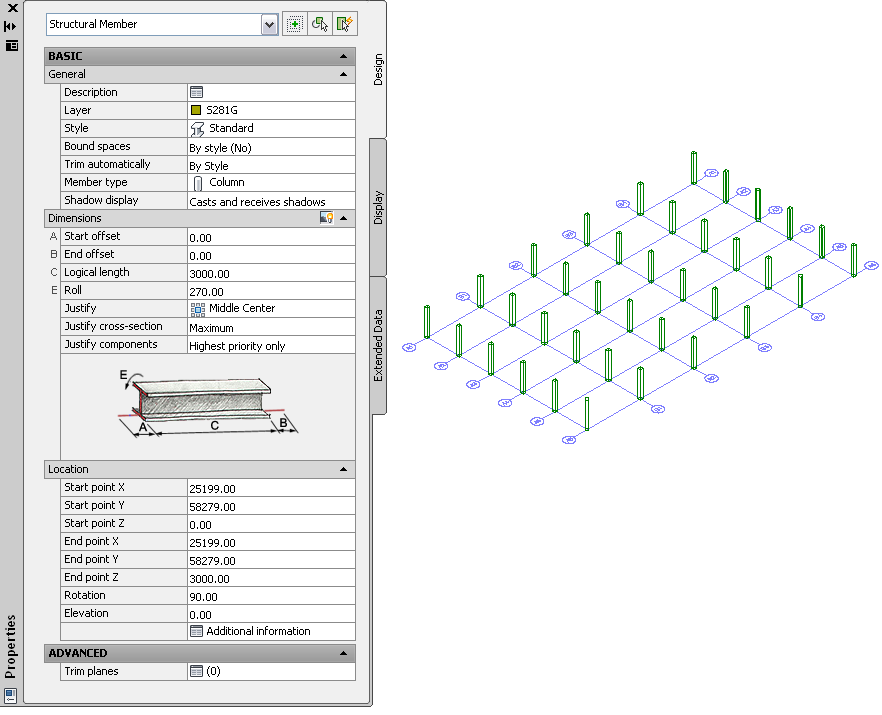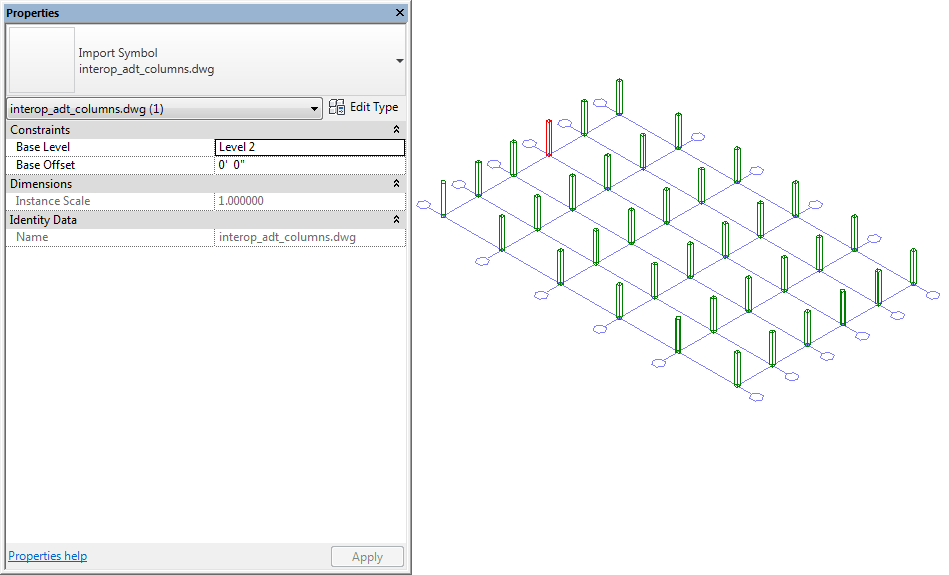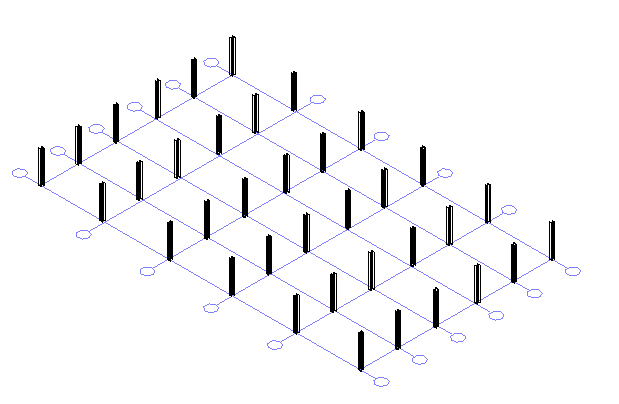Columns, beams, and braces are the structural members in a building. They can be created in AutoCAD Architecture and imported to Revit for reference.
You can access limited information about the partially exploded AutoCAD Architecture members, which are read-only and cannot be manipulated. Use them as reference for tracing and re-creating members in Revit.

Columns in AutoCAD Architecture
The following properties of an AutoCAD Architecture structural member are maintained when it is imported to Revit:
- Component Description
- Roll angle
- Member length
- AutoCAD Architecture style name
- Structural Type name (Column/Beam/Brace)
- Type name (Structural Member)
The following properties are added to the imported member:
- Base level
- Base offset
- Instance scale (defined on import)
- Instance name (name of the imported DWG file)
To import structural members from AutoCAD Architecture
- Create or open the Revit project into which you want to import the AutoCAD Architecture structural members.
- In the Project Browser, select the view in which you want the imported members to display.
- Import the AutoCAD Architecture drawing into Revit, as described in Importing or Linking CAD Files.
When you import a DWG/DXF file into Revit, you can import all layers, all visible layers, or selected layers. After they are imported, layers can be selectively deleted from Revit at any time.
The imported drawing displays as a single import symbol.
- For more information about the imported objects, select the Import symbol, click Modify | <File Name> tab
 Import Instance panel
Import Instance panel
 (Query), and select structural member blocks to query.
(Query), and select structural member blocks to query. A query displays the object type, block name (identical to imported drawing name), layer, and style name, as applicable.
To exit Query mode, press Esc.
Note: The imported drawing can be exploded or partially exploded. To access the imported read-only AutoCAD Architecture objects, perform a partial explode. - Click Modify | <File Name> tab
 Import Instance panel
Import Instance panel Explode drop-down
Explode drop-down
 (Partial Explode).
(Partial Explode). A partial explode on an imported drawing allows you to display the individual object’s properties.

Partially exploded AutoCAD Architecture columns in Revit
- To create a Revit structural member, click Structure tab
 Structure panel, and click
Structure panel, and click  (Beam),
(Beam),  (Column), or
(Column), or  (Brace).
(Brace). - Move the cursor over the imported member, and create the new structural member in one of the following ways:
- If you are creating a structural column, use the preview image of the column to position the Revit column inside the imported AutoCAD Architecture column, and then click to place it.
- If you are creating a beam or a brace, trace over the imported object to create the new object.
- If necessary, adjust the dimensions of the new member to match the imported object more exactly.
- If the drawing will not be exported back to AutoCAD Architecture and you have no further need for the imported geometry, delete it using one of the following methods:
- Select the import symbol of the imported object, and press Delete.
- Select the import symbol, and click Modify | <File Name> tab
 Import Instance panel
Import Instance panel
 (Delete Layers), and delete the relevant layers of the imported drawing.
(Delete Layers), and delete the relevant layers of the imported drawing. - If the drawing was linked into Revit, click Manage tab
 Manage Project panel
Manage Project panel
 (Manage Links), and unload the imported drawing from Revit. Note: You can reload the file later, if necessary.
(Manage Links), and unload the imported drawing from Revit. Note: You can reload the file later, if necessary.

Revit columns created from imported AutoCAD Architecture columns